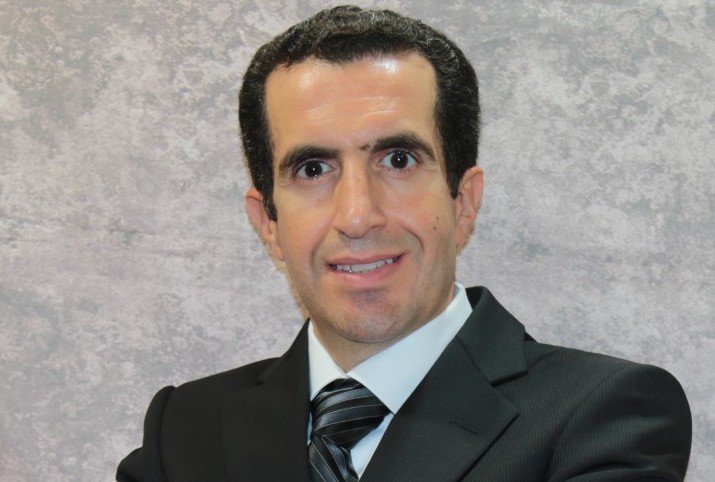Organisations across the world are investing in the digital transformation to remain relevant to their customers and survive disruption. The Internet of Things (IoT) is one element in this transformation journey and has the potential to transform every industry, even traditional ones. According to Dr. Muneer Zuhdi, Director of Solution Line Management in the Global Digital Economy Practice at Nokia (www.Nokia.com), IoT brings huge opportunities to businesses in MENA, looking to reduce cost, generate new revenue opportunities and enhance customer experience.

“There are unlimited possibilities for the usage of IoT. IoT applications will define future cities and impact every aspect of people’s lives. These applications aim to make cities smart, safe, and sustainable. The goal is to improve the quality of people’s lives, enhance their safety from natural or man-made disasters, and maximise the efficiency of the utilisation of resources,” he says.
Nokia supports these IoT applications with a shared, secure, and scalable networks and platforms. “This enables our customers to minimise the incremental investment required to provide IoT applications, introduce new IoT applications without disruption to existing services, and ensure the end-to-end security for the new solutions.” The IoT platform from Nokia, branded as IMPACT, comes pre-integrated with several use cases that improve people’s lives while making businesses and cities smart, safe, and sustainable.
“Video analytics, for example, utilises an advanced machine learning algorithm for crowd and traffic management, which helps with public safety. Smart lighting and fleet management enhances the sustainability of natural and business or city resources. Finally, applications like smart parking achieve multiple goals in terms of making people work and live smarter by eliminating time waste, generating new revenues for businesses or cities, and reducing road congestions, pollution, and fuel waste,” says Dr. Zuhdi.
He says IoT has been gaining great traction in Smart Cities and Nokia has been involved in multiple Smart City opportunities across the MENA region, each with their own challenges and priorities. “Nokia is in a unique position to be the trusted partner for our customers on this journey. It starts with being able to utilise the expertise of Bell Labs to consult with our customers and guide them on developing a strategy and plan that is tailored to their market.”
Nokia has all the building blocks for the Smart City end-to-end solution whether it is over fixed or mobile network. The solution is highlighted by the IMPACT IoT platform, which is a scalable, horizontal, and multi-tenant platform. It enables cities to securely host applications from multiple agencies in addition to their own applications. Nokia also provides the end to end security and services.
“Nokia has also been investing in building ecosystem of partners focusing on different IoT applications and performing technology and market trials. This enables us to evaluate concept and expedite the delivery of new applications and use cases while partnering with the most innovative companies. Nokia can really help in every phase of this journey, from strategic planning to ensuring that the network is built right first time and optimised for the smart city applications, to finally providing access to the most innovative use cases to cities and their businesses and residents,” says Dr. Zuhdi.
Security always remains a grave concern, particularly in the wake of recent ransomware attacks. He says it is important to evaluate the end-to-end security for the entire IoT solution, including devices, network, platform, cloud, and application security. This is the approach for the Nokia security products which include end-points, gateway, DNS, and platform security, along with certificate management, security management, and identity & access management.
“The IMPACT IoT platform allows secured and authenticated collection of IoT data, which is only distributed to authorised applications and end users. The NetGuard End-point Security provides a network-based anti-malware solution combining monitoring, detection, and mitigation for smart devices and IoT end-points. When the IMPACT IoT platform detects abnormal traffic, it sends a notification to the application or end user and has the capability to update the firmware to fix a security hole or instruct the network to stop the device from transmitting.”
From a security perspective, firmware upgrades are crucial, particularly as IoT devices are expected to be an operation for a long time. Nokia has helped operators and enterprises globally to provide over-the-air (OTA) firmware updates to end device, such as in connected cars, to proactively address any security concern.
“Companies across the entire value chain of the telecom sector have an excellent opportunity to not only participate in this transformation but even to lead it. Nokia has been extremely active in IoT by optimising our products to support IoT applications, investing in IoT technologies, acquiring innovative companies, collaborating with IoT technology leaders, and building IoT ecosystems to develop solutions covering different industries. This multi-prong approach enables Nokia to partner with our MENA customers in this IoT journey and provides them the most innovative end-to-end IoT solutions,” says Dr. Zuhdi.
IoT and related technologies continue to evolve and Nokia has big plans. “The Nokia Worldwide IoT Network Grid (WING) will be available later this year and will offer both connectivity and managed services to businesses while enabling service providers to offer IoT services under their own brand. We have also recently announced the launch of our award-winning IMPACT IoT platform with pre-integrated solutions such as video analytics, Smart Parking, Smart Lighting, and Fleet Management. The connectivity will also include both LoRA and the newly standardised NB-IoT. We continue to engage globally with service providers, cities, and enterprises on the specific requirements in their unique markets. Meanwhile, we are continuing to invest in critical IoT verticals such as Smart City, public safety, connected utilities, connected vehicles, connected health, and connected homes. These verticals will enable our customers to provide their customers applications that enhance the quality of their lives, and enhance their environment and business sustainability while making them safer,” he says.












